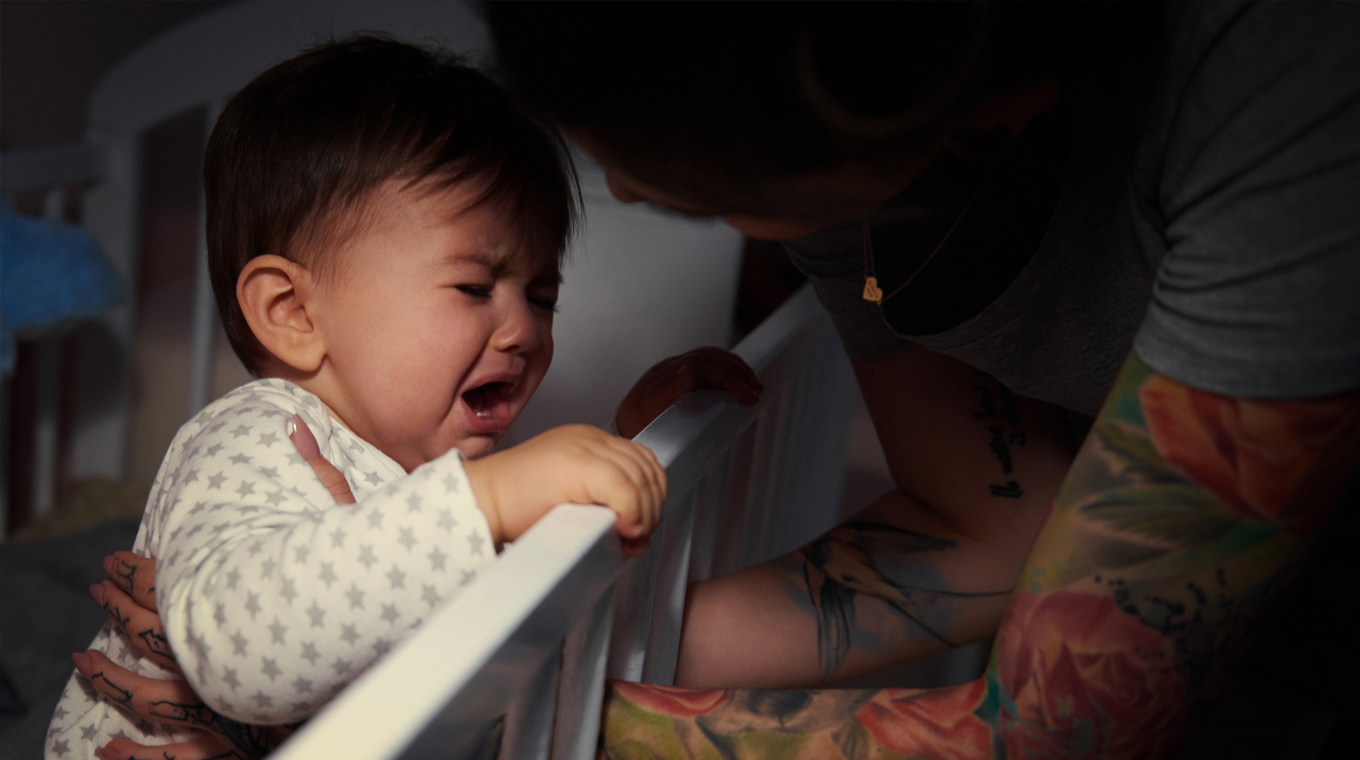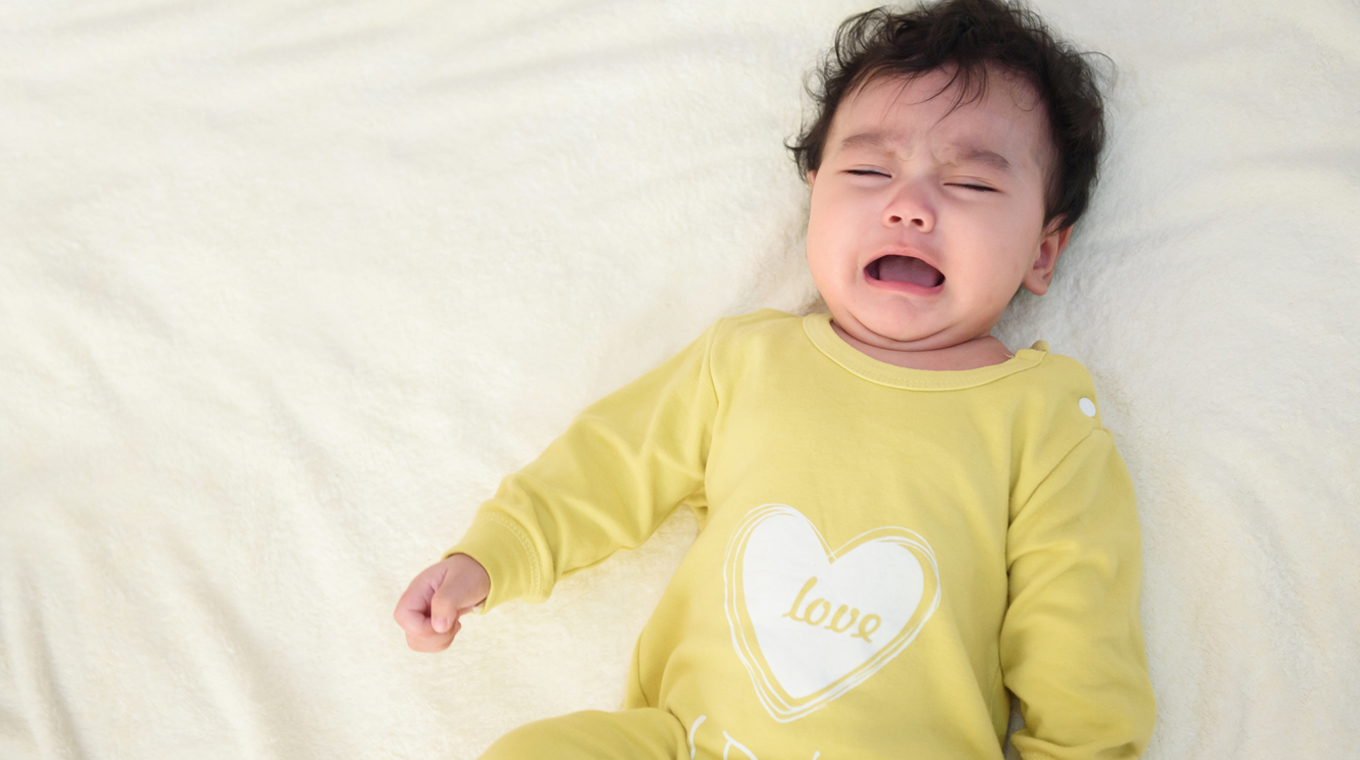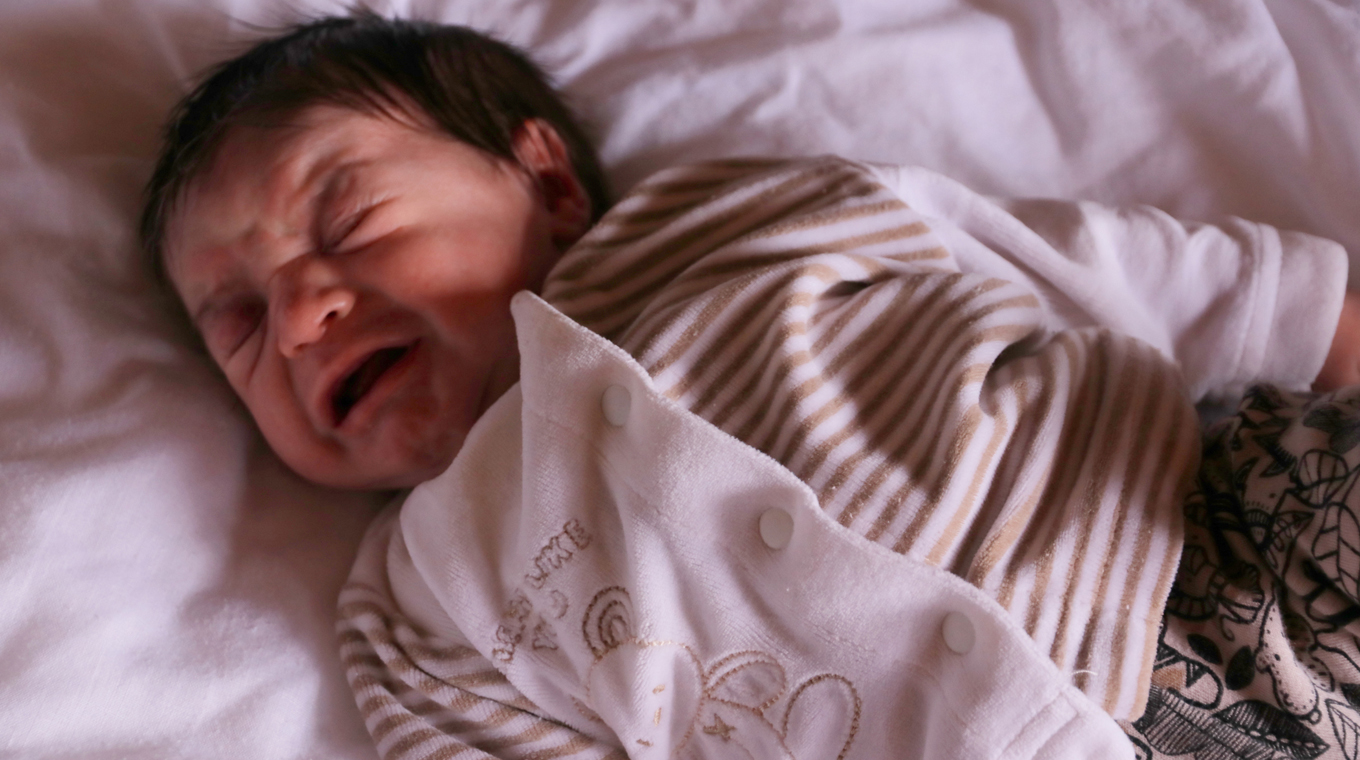
In this article
The sound of a baby crying is like an alarm to parents, signaling that their baby might need something, such as soothing or feeding. Hearing a baby suddenly cry out in its sleep may be confusing for some people, especially new parents. Below, we break down the reasons for a baby crying in its sleep and what to do.
Reasons babies cry in their sleep

One minute your baby is sleeping peacefully and the next, you hear it cry out in distress. What gives? “So the first time it happened with my first I was in awe,” Lindsey McDonald, mom of two, told Mom.com about her encounter with her baby crying out in its sleep. “It was a tiny little whimper cry from a tiny little baby. I felt so bad for her. Luckily it lasted just a minute.”
Turns out babies crying out in their sleep is common. As long as there are no other concerning symptoms, such as being in pain, then there’s not much to worry about. Below are some reasons why your baby might be crying in his sleep:
- Babies cry to express themselves so your baby might be having a nightmare, which mostly happens during light sleep or random eye movement sleep. However, older babies who have more developed imaginations are more prone to nightmares and night terrors than newborns.
- Your baby might be getting used to her milk or formula.
- Newborns are restless sleepers, alternating between non-rapid eye movement and rapid eye movement (ever heard of REM?). In fact, they only sleep about one to two hours at a time. These light sleep phases can lead to your baby letting out a whimper.
- Sleep regression, which is when your baby suddenly has trouble sleeping due to a growth spurt or teething, might be causing them to cry out at night.
- Babies transition between sleep cycles faster than adults and might wake up in between them. During this brief moment, they might cry out for a little bit.
- Overtired babies and toddlers may cry before falling asleep and in between sleep cycles.
How to make a baby stop crying

Nobody likes a crying baby. However, it can be difficult to determine whether you should wake up your sleeping and crying baby or just let them work it out themselves.
For the most part, it’s recommended to wait and watch your baby. It’s likely that your baby will fuss for a few minutes and then settle back into sleep again. This is because babies transitioning between sleep stages might be in a semi-conscious state and not actually awake, so you could be disturbing them. If your baby is hungry or cold, their crying will probably escalate into something more urgent.
“This means that it’s okay to let your baby cry a little,” Claire McCarthy, MD, wrote for Harvard Health Publishing. “It’s not only okay, it may lead to more sleep all around. Which makes everyone happier.”
And research seems to back this up. McCarthy also cited a study done that compared babies who were sleep trained and those that were soothed while crying. “They compared families who did sleep training and families who didn’t and followed them for six years,” McCarthy wrote. “There was no difference between the two groups. Whether parents let babies cry or got up all night to hold them, the kids turned out the same.”
“We can get sleep and still have well-adjusted kids who love us. How great is that?” she said.
If the crying does continue but you’re sure your baby isn’t hungry or needs a new diaper, then you can talk to her softly or rub her back or stomach. This can help ease the baby into the next sleep stage. If she seems to be in an uncomfortable position, you can gently reposition her on her back in the middle of her bed. You can also check the temperature to make sure it’s comfortably between 68 and 72 degrees Fahrenheit.
Worried about your baby's crying sounds? When to call the doctor

You should contact your pediatrician if you notice these issues with your baby crying in its sleep:
- His nighttime crying is persistent, lasting for two to three hours
- She’s crying out in pain
- Her sleep habits changed suddenly
- Her feeding is now more difficult, like not latching on well
“If your baby is waking up crying at night, talk to your doctor,” McCarthy advised. “There are lots of reasons babies cry at night. But if your doctor tells you that everything is okay, don’t feel that you have to respond to every single cry.”




